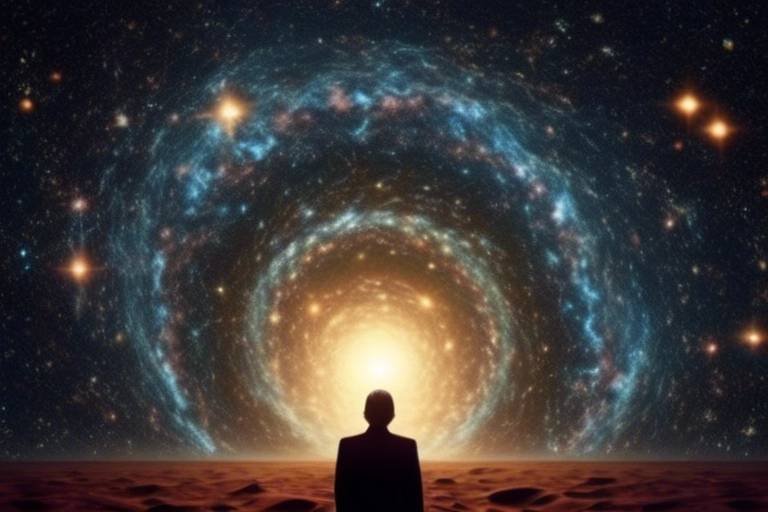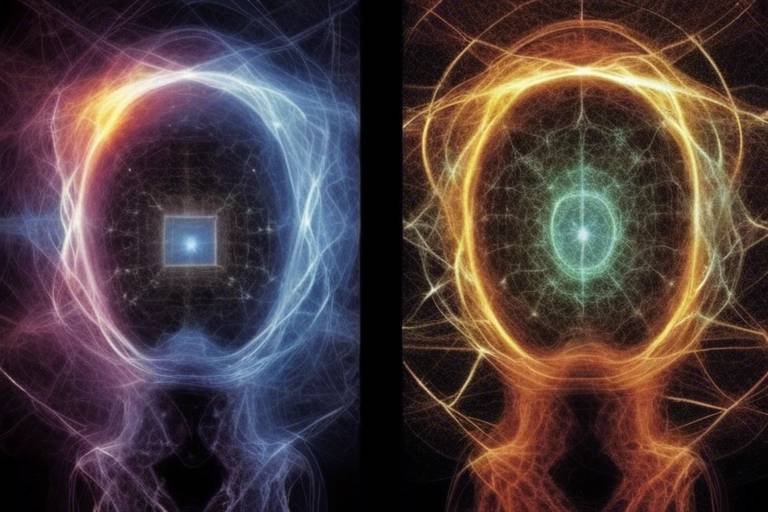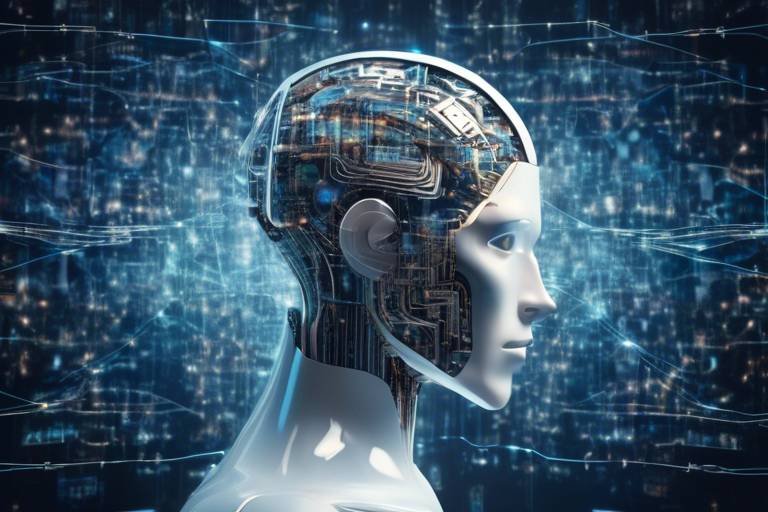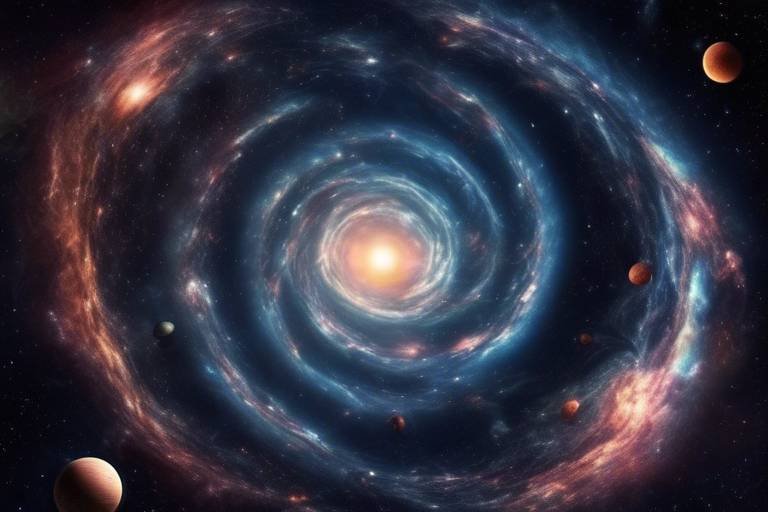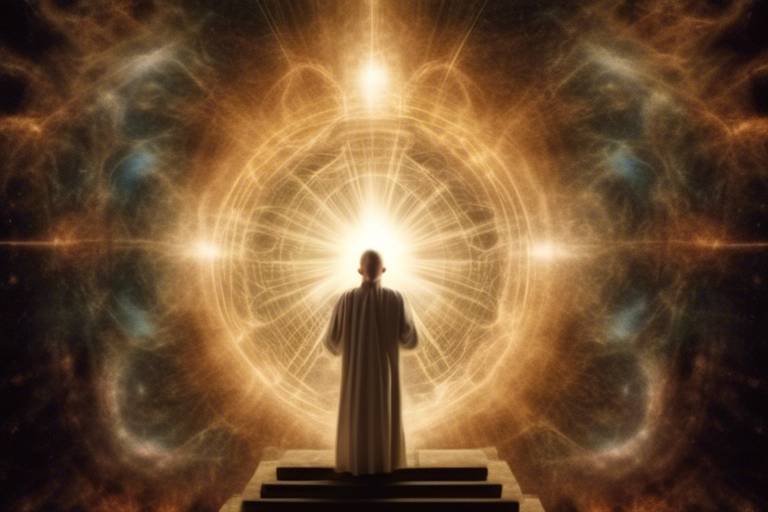The Paradox of Free Will in Metaphysics
When we dive into the depths of metaphysics, we often stumble upon a fascinating and perplexing conundrum: the paradox of free will. This age-old debate has captivated the minds of philosophers, theologians, and curious individuals alike, leading us to ponder whether we are truly the architects of our own destinies or mere puppets dancing to the strings of fate. The discussion surrounding free will is not just an abstract philosophical exercise; it has profound implications for our understanding of human agency, moral responsibility, and the very fabric of reality itself.
At the heart of this paradox lies the tension between two opposing views: determinism, which posits that every event is the result of preceding causes, and the notion of free will, which suggests that individuals can make choices independent of external influences. Imagine a world where every action is predetermined, like a chess game where every move has already been decided. In contrast, envision a realm where we hold the reins, able to steer our lives in any direction we choose. This dichotomy raises essential questions: Can we truly be held accountable for our actions if they were always meant to happen? Or do we possess the power to shape our own futures, despite the constraints of our circumstances?
The implications of this debate stretch far beyond philosophical musings. They touch on our everyday lives, influencing everything from our legal systems to our personal relationships. If we accept a deterministic view, the idea of moral responsibility becomes murky. How can we blame someone for a crime if they were destined to commit it? Conversely, if we embrace free will, we must grapple with the weight of our choices and the ethical ramifications that accompany them. The paradox of free will challenges us to reconsider our beliefs about autonomy, justice, and the nature of existence itself.
As we explore this complex relationship, we will navigate various philosophical perspectives and their implications for our understanding of reality. From the arguments supporting free will to the nuances of compatibilism, where free will and determinism coexist, the journey through this metaphysical landscape promises to be enlightening. Join us as we unravel the threads of this paradox, seeking clarity in a world that often feels governed by uncertainty.
- What is free will? Free will is the ability to make choices that are not determined by prior causes or divine intervention.
- What is determinism? Determinism is the philosophical view that every event or state of affairs is necessitated by preceding events in accordance with the natural laws.
- Can free will and determinism coexist? Yes, this perspective is known as compatibilism, which suggests that free will can exist within a deterministic framework.
- Why does the free will debate matter? The debate impacts our understanding of moral responsibility, accountability, and how we perceive our actions and choices in everyday life.

The Concept of Free Will
Understanding free will is like peeling an onion; each layer reveals deeper insights into what it means to be human. At its core, free will is the ability of individuals to make choices that are not solely determined by external forces or past events. It’s the essence of our autonomy, the spark that ignites our capacity for decision-making. Imagine standing at a crossroads, with multiple paths ahead of you. Each choice you make shapes your journey, and therein lies the beauty of free will. But what happens when we consider the opposing force of determinism? This philosophical debate has raged for centuries, challenging our understanding of personal agency and moral responsibility.
Free will is significant because it underpins our notions of morality, ethics, and justice. If we truly have the ability to choose our actions, then we can be held accountable for them. This notion is crucial in legal systems worldwide, where the concept of culpability hinges on the idea that individuals can choose to act in accordance with the law or against it. Without free will, the very foundation of our moral frameworks would crumble, leading to a society where accountability becomes meaningless. But does free will truly exist, or is it just an illusion crafted by our consciousness?
Philosophers have long debated the implications of free will. Some argue that our decisions are influenced by a myriad of factors—genetics, environment, upbringing, and societal norms—making the idea of complete autonomy questionable. Others contend that even within these constraints, we still possess the ability to choose. This brings us to the crux of the discussion: the tension between free will and determinism. Can we truly be free if our choices are influenced or predetermined by factors beyond our control?
To further illustrate this, consider the following table that outlines some key differences between free will and determinism:
| Aspect | Free Will | Determinism |
|---|---|---|
| Definition | The ability to make choices independent of external influences | The belief that all events are determined by preceding events |
| Moral Responsibility | Individuals are accountable for their choices | Accountability is questionable; choices are preordained |
| Philosophical Supporters | Existentialists, Libertarians | Determinists, Hard Determinists |
In conclusion, the concept of free will is not just a philosophical abstraction; it is a fundamental aspect of human existence that shapes our understanding of ourselves and our place in the world. As we delve deeper into this topic, we will uncover the various perspectives that challenge or support the notion of free will, ultimately seeking to answer the question: Are we truly the architects of our own destinies, or are we merely actors playing a role scripted by the universe?
- What is free will? Free will is the ability to make choices that are not determined by external factors or past events.
- Is free will compatible with determinism? This is a central question in philosophy, with some arguing for compatibilism, which suggests that both can coexist.
- Why is free will important? Free will is crucial for moral responsibility, accountability, and ethical decision-making in society.

Determinism Explained
Determinism is a philosophical concept that suggests every event, including human actions, is the outcome of preceding events and conditions. Imagine a vast, intricate machine where every gear and cog interacts with one another; this is similar to how determinism views the universe. In this framework, the choices we make and the paths we take are not as random or free as we might like to believe. Instead, they are shaped by an unbroken chain of prior occurrences that dictate the course of our lives. This leads us to ponder: if every decision is predetermined, what does that mean for our sense of agency? Are we merely puppets dancing on strings woven by fate?
At its core, determinism challenges our understanding of free will. If every action is a result of previous actions, can we truly claim to have the freedom to choose? This raises significant questions about personal autonomy and moral responsibility. If a person commits a crime, can they be held accountable if their actions were predetermined by their upbringing, genetics, or environmental factors? This dilemma places a heavy burden on the concept of justice, as it forces us to reconsider how we assign blame and praise in society.
To better understand determinism, it's essential to explore its various forms. Each type presents unique implications for the free will debate. Here are some of the most discussed types of determinism:
- Causal Determinism: This form suggests that every event is necessitated by preceding events in a cause-and-effect relationship. For example, if you choose to eat an apple instead of a banana, that decision was influenced by a myriad of factors, such as your taste preferences, availability of fruit, and even your past experiences with each fruit.
- Logical Determinism: This perspective posits that the truth value of propositions about the future is already determined. If we say "It will rain tomorrow," then it is either true or false, regardless of whether we are aware of it.
- Theological Determinism: This viewpoint argues that if a divine being has foreknowledge of all events, then those events are predetermined. If God knows what choices we will make, can we genuinely say we are free to make those choices?
Each of these types of determinism contributes to the ongoing discussion about free will. For instance, causal determinism raises the question of whether our actions are genuinely our own or merely the result of a long chain of events. Meanwhile, theological determinism introduces a complex interplay between divine knowledge and human freedom, suggesting that our lives may already be scripted in some cosmic play.
As we navigate through these intricate philosophical waters, it becomes clear that the implications of determinism extend far beyond abstract thought experiments. They touch on the very fabric of our moral framework and how we perceive ourselves as agents of change in the world. The challenge lies in reconciling our intuitive sense of freedom with the deterministic nature of the universe. Can we find a balance that allows us to embrace both our capacity for choice and the influences that shape our decisions?
In summary, understanding determinism is crucial for grasping the broader implications it has on free will and moral responsibility. As we delve deeper into this philosophical landscape, we must confront the uncomfortable truths about our autonomy and the forces that govern our actions. The conversation is far from over, and as we continue to explore these themes, we may find new insights that challenge our existing beliefs.
- What is the main idea of determinism? Determinism posits that every event or action is the result of preceding events, suggesting that free will may be an illusion.
- How does determinism affect moral responsibility? If our actions are predetermined, it raises questions about accountability, as individuals may not have complete control over their choices.
- Are there different types of determinism? Yes, notable types include causal, logical, and theological determinism, each with unique implications for the free will debate.
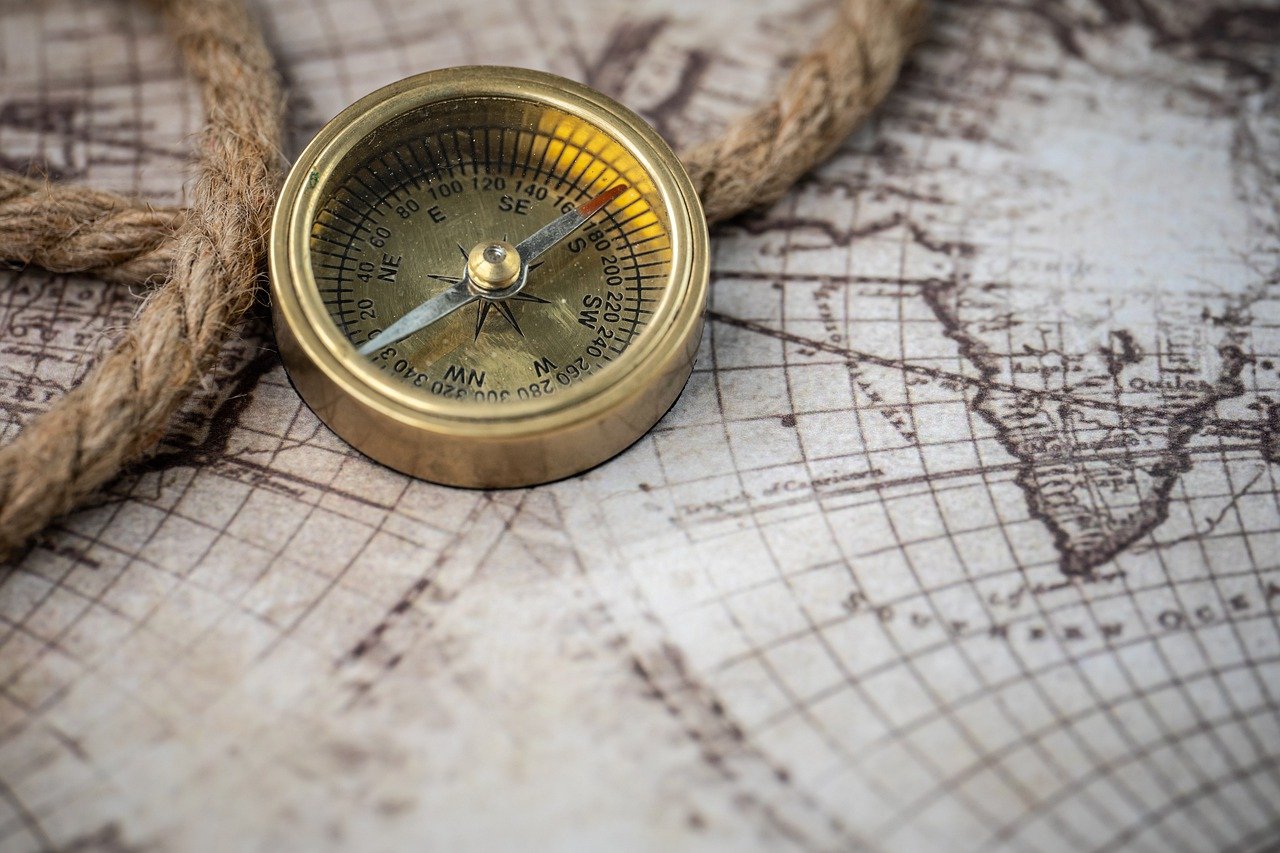
Types of Determinism
When we dive into the rich and intricate world of determinism, it’s essential to recognize that it’s not a one-size-fits-all concept. In fact, there are several distinct types of determinism, each presenting unique perspectives on how events unfold in our universe. Understanding these variations can illuminate the ongoing debate about free will and our perceived autonomy. Let’s explore some of the most significant types of determinism that philosophers have grappled with over the years.
First off, we have causal determinism. This is perhaps the most commonly discussed form and posits that every event or action is the result of preceding events—like a massive chain reaction. Imagine a row of dominoes: when the first one falls, it inevitably causes the next to tumble, and so on. In this framework, every choice we believe we make is simply the consequence of a long chain of prior causes. If everything is predetermined by past events, can we truly claim to have free will?
Next, we encounter logical determinism, which hinges on the idea that propositions about the future are either true or false. If a statement about the future is true, then it must be the case that it will happen, which raises questions about our ability to change that future. For instance, if it is true that "John will go to the store tomorrow," then John’s action is already determined. This perspective challenges our intuition about choice, as it suggests that the future is fixed in a way that we might not be able to alter.
Then we have theological determinism, a fascinating concept that intertwines with religion and divine foreknowledge. This view asserts that if a deity possesses complete knowledge of the future, then it must also mean that our actions are predetermined by that divine knowledge. This raises profound questions: If God knows what we will do, can we truly be held accountable for our actions? The tension between divine omniscience and human freedom becomes a central point of contention in discussions about moral responsibility.
Each type of determinism brings its own set of implications for our understanding of free will. While causal determinism suggests a mechanistic view of the universe, logical determinism challenges the very nature of truth regarding future events, and theological determinism introduces a divine element that complicates the narrative even further. As we consider these types, it’s crucial to engage with the philosophical arguments surrounding them and reflect on how they influence our beliefs about autonomy and moral responsibility.
In summary, the landscape of determinism is rich with complexity and nuance. By examining causal, logical, and theological determinism, we can better appreciate the philosophical debates that shape our understanding of free will. Each type not only contributes to the discussion but also invites us to ponder our place in a universe that may or may not allow for genuine choice.

Causal Determinism
Causal determinism is a fascinating concept that suggests every event or action is the result of preceding events, creating a chain of cause and effect that stretches back into the past. Imagine a row of dominoes; once the first one falls, the rest inevitably follow. This metaphor encapsulates the essence of causal determinism, where every choice we make or action we take is the consequence of a prior state of affairs. This raises a compelling question: if our actions are merely the results of prior causes, do we truly possess free will?
To understand causal determinism, we must delve into its implications for human behavior and decision-making. If every choice we make is predetermined by a series of prior events—such as our upbringing, genetics, and environment—then the concept of personal autonomy becomes increasingly problematic. Are we just puppets dancing on the strings of fate, or do we have the ability to break free from these constraints? This tension is at the heart of many philosophical debates surrounding free will.
Moreover, causal determinism extends beyond individual actions to encompass broader societal and ethical considerations. For instance, if a person commits a crime, can we hold them morally responsible if their actions were predetermined by their past experiences? This dilemma forces us to reconsider our notions of justice and accountability. In a deterministic framework, the legal system may need to adapt its understanding of culpability, emphasizing rehabilitation over punishment, as individuals are seen as products of their circumstances rather than purely autonomous agents.
Here are some key aspects of causal determinism:
- Historical Context: The roots of causal determinism can be traced back to ancient philosophy, where thinkers like Aristotle explored the nature of causality.
- Scientific Basis: Modern physics, particularly in the realm of classical mechanics, supports the idea that events are determined by preceding conditions.
- Philosophical Challenges: Critics argue that causal determinism undermines moral responsibility, as it suggests individuals lack true agency.
In conclusion, causal determinism presents a complex interplay between cause and effect, raising profound questions about human agency and moral responsibility. As we navigate through life, it’s essential to consider whether our choices are truly our own or merely the result of an intricate web of prior events. This ongoing philosophical inquiry invites us to reflect on the nature of existence itself and our place within it.
- What is causal determinism? Causal determinism is the philosophical idea that every event or action is the result of preceding events, creating a chain of cause and effect.
- Does causal determinism negate free will? This is a contentious issue; some argue that it undermines free will, while others believe that free will can coexist with determinism.
- How does causal determinism affect moral responsibility? If actions are predetermined, it raises questions about accountability and whether individuals can be held responsible for their choices.

Theological Determinism
Theological determinism is a fascinating concept that intertwines the realms of philosophy and theology, asserting that divine foreknowledge dictates human actions. Imagine a grand tapestry, where every thread represents a decision or event in human history, all meticulously woven by the hands of a divine creator. This perspective raises profound questions about the nature of free will and moral responsibility. If a deity possesses complete knowledge of all future events, can we truly claim that we are the architects of our own choices?
At the heart of theological determinism lies the tension between divine omniscience and human freedom. If we accept that God knows our every decision before we make it, does that imply that we are mere puppets in a cosmic play? This dilemma challenges our understanding of autonomy and accountability. For instance, if a person commits a morally reprehensible act, can they genuinely be held accountable if their actions were foreseen and predetermined by a higher power?
Many theologians and philosophers have grappled with these questions, leading to a variety of interpretations. Here are a few key points to consider:
- Divine Foreknowledge: The belief that God knows all future events, including human actions, before they occur.
- Human Agency: The argument that despite divine foreknowledge, humans still possess the ability to make choices.
- Moral Responsibility: The debate on whether individuals can be held morally accountable for actions that were foreknown and thus seemingly predetermined.
Philosophers like Augustine and Aquinas have contributed significantly to this discourse. Augustine suggested that God's foreknowledge does not negate human free will; instead, it coexists with it, allowing for a complex relationship between divine providence and human choices. Aquinas further explored this by positing that God's knowledge is not temporal; thus, it does not impose necessity on human actions. This view allows for a nuanced understanding of how divine omniscience interacts with human freedom.
However, critics of theological determinism argue that if God’s foreknowledge is absolute, it undermines the very essence of free will. They contend that true freedom requires the ability to choose otherwise, which seems incompatible with a predetermined outcome. This ongoing debate fuels discussions in both philosophical and theological circles, as scholars attempt to reconcile the apparent contradictions between divine sovereignty and human agency.
In conclusion, theological determinism presents a rich field of inquiry that invites us to ponder the depths of our existence. Are we truly free, or are our lives scripted by a divine playwright? This philosophical journey not only challenges our perceptions of free will but also shapes our understanding of moral responsibility in a world that often feels governed by forces beyond our control.
- What is theological determinism? It is the belief that God's foreknowledge determines human actions, raising questions about free will and moral responsibility.
- How does divine foreknowledge affect free will? Some argue that if God knows our choices in advance, it challenges the notion of true autonomy.
- Can we be held morally accountable if our actions are predetermined? This is a contentious issue, with differing opinions on the implications of divine foreknowledge for moral responsibility.

Arguments for Free Will
The debate surrounding free will is as old as philosophy itself, and it continues to ignite passionate discussions. Proponents of free will argue that humans possess an inherent ability to make choices that are not solely dictated by external factors. This belief is rooted in the notion of personal autonomy—the idea that individuals can act according to their own desires and intentions. But what does this really mean in the context of our everyday lives? Imagine standing in front of a buffet filled with delicious options. You might feel the urge to grab everything, but ultimately, you make a conscious decision about what to put on your plate. This simple act embodies the essence of free will.
One of the strongest arguments for free will is the experience of making choices. We often reflect on our decisions, weighing pros and cons, and feeling the weight of responsibility that comes with them. This introspective process suggests that we have the capacity to choose differently in similar situations. For instance, if faced with a moral dilemma, such as whether to help a stranger in need, the deliberation and choice involved can give us a sense of agency. This subjective experience of choice is compelling evidence that free will exists, as it aligns with our understanding of personal responsibility.
Moreover, the concept of moral responsibility hinges on the existence of free will. If individuals are not free to choose their actions, how can society hold them accountable for their behavior? Consider the legal system, which is built on the premise that people can choose to obey or break the law. If determinism ruled our actions, then punishing someone for a crime would seem unjust, as they would not have had the ability to act differently. This raises important questions: Can we truly blame someone for their actions if they were predetermined? The implications for justice and societal norms are profound and underscore the necessity of free will in our moral framework.
Additionally, the notion of free will is supported by the advancements in psychology and neuroscience. Research indicates that individuals often have the ability to override instinctual responses and make deliberate choices. For instance, when faced with temptations, people can choose to resist and act in accordance with their values. This self-control is a testament to the capacity for free will in our lives. Furthermore, studies in cognitive science suggest that the brain is not merely a machine responding to stimuli; rather, it is capable of complex decision-making processes that involve weighing options and considering consequences.
In essence, the arguments for free will are not just theoretical; they resonate deeply with our lived experiences. They highlight the importance of personal agency, moral responsibility, and the intricate workings of the human mind. While the debate may continue, the belief in free will empowers individuals to take charge of their lives, make meaningful choices, and shape their destinies. After all, if we did not believe in our ability to choose, would we not feel like mere puppets in a grand cosmic play?
- What is free will? Free will is the ability to make choices that are not determined by prior causes or divine intervention.
- How does free will relate to moral responsibility? Free will is essential for moral responsibility, as it allows individuals to be held accountable for their actions.
- Can free will and determinism coexist? Yes, some philosophers argue for compatibilism, which suggests that free will can exist within a deterministic framework.
- What are some examples of free will in everyday life? Everyday decisions, such as choosing what to eat or how to respond to a situation, demonstrate free will in action.

Compatibilism: A Middle Ground
When we dive into the murky waters of free will and determinism, it can feel like we’re stuck in a philosophical tug-of-war. But here’s where compatibilism comes into play, offering a refreshing middle ground that might just clear the air. This perspective asserts that free will and determinism are not mutually exclusive; instead, they can coexist harmoniously. Imagine trying to balance a tightrope while holding two opposing signs—compatibilism is like finding your center and walking that line with grace.
At its core, compatibilism suggests that our choices can still be considered free, even if they are influenced by prior events and conditions. This means that while your decisions might be shaped by your upbringing, environment, and experiences, you still have the ability to make choices that reflect your desires and intentions. It’s akin to being in a buffet where, although the options are laid out for you, you still get to choose what to put on your plate. The freedom lies in making selections that resonate with your preferences, even within the constraints of what’s available.
One of the most compelling aspects of compatibilism is how it redefines the concept of moral responsibility. If our actions are determined by a chain of events, how can we hold individuals accountable? Compatibilists argue that accountability doesn’t vanish; rather, it shifts. As long as individuals are acting according to their motivations and desires, they can be deemed responsible for their actions. This perspective allows us to maintain a sense of justice in society while still acknowledging the influences that shape our decisions.
Philosophers like David Hume and Harry Frankfurt have been pivotal in shaping compatibilist thought. Hume posited that freedom is not about being uncaused but rather about acting in accordance with one’s desires. In a similar vein, Frankfurt introduced the idea of “second-order desires,” which emphasizes that true freedom involves wanting to want something. In other words, it’s not just about making choices; it’s about making choices that align with our deeper values and motivations.
As we navigate through this philosophical landscape, it’s essential to consider how compatibilism impacts various aspects of life. For instance, in the realm of ethics, it encourages a more nuanced approach to moral dilemmas. Instead of viewing individuals as mere puppets of fate, compatibilism invites us to recognize the complexity of human behavior. It acknowledges that while our choices may be influenced, they are still our own, and thus, we can engage in ethical reasoning that reflects our understanding of responsibility.
In summary, compatibilism presents a compelling framework for reconciling the seemingly opposing forces of free will and determinism. It allows us to embrace the richness of human experience while maintaining a sense of accountability. So, the next time you find yourself pondering the nature of your choices, remember that you’re not just a product of your circumstances; you’re also the architect of your own decisions, navigating the intricate dance between influence and autonomy.
- What is compatibilism? Compatibilism is the philosophical view that free will and determinism can coexist harmoniously, allowing individuals to make meaningful choices within a framework of prior influences.
- How does compatibilism redefine moral responsibility? Compatibilism suggests that as long as individuals act according to their desires and motivations, they can be held morally responsible for their actions, even if those actions are influenced by past events.
- Who are the key philosophers associated with compatibilism? Notable philosophers such as David Hume and Harry Frankfurt have significantly contributed to compatibilist thought, emphasizing the importance of desires and motivations in understanding free will.
- Can you give an example of compatibilism in everyday life? Imagine choosing a career path. While your choice may be influenced by your upbringing and experiences, the decision ultimately reflects your personal desires and aspirations, illustrating compatibilism in action.

Philosophers of Compatibilism
The debate around free will and determinism has seen numerous philosophers weighing in, but none have navigated these turbulent waters quite like the compatibilists. Compatibilism, often seen as a bridge between the seemingly opposing views of free will and determinism, suggests that the two can coexist harmoniously. One of the most prominent figures in this realm is David Hume, an 18th-century philosopher who argued that human freedom is best understood not in terms of absolute independence but rather in relation to our desires and motivations. Hume posited that even if our actions are determined by prior events, we can still be considered free as long as we act according to our own desires. This perspective challenges the notion that freedom requires the absence of causation, instead suggesting that freedom can exist within a causal framework.
Another key figure in compatibilist thought is Harry Frankfurt. Frankfurt introduced the idea of "second-order desires," which are desires about our desires. He argued that true freedom comes from aligning our actions with our second-order desires. For instance, if someone desires to quit smoking but finds themselves unable to do so, they may feel a lack of freedom. However, if they can cultivate a desire to quit smoking and act upon it, they achieve a form of freedom that is compatible with determinism. Frankfurt's work emphasizes the importance of personal agency, even within a deterministic context, and highlights how understanding our motivations can lead to genuine moral responsibility.
Compatibilists also contend that moral responsibility hinges on the ability to respond to reasons and act accordingly. This perspective is crucial in discussions about ethics and accountability. For instance, if a person commits a crime due to coercion or extreme duress, compatibilists would argue that their moral responsibility is mitigated by the lack of genuine choice. This nuanced understanding allows for a more compassionate view of human behavior, recognizing the complexity of human motivations while still holding individuals accountable for their actions.
In summary, philosophers like Hume and Frankfurt have paved the way for a deeper understanding of compatibilism, illustrating that free will can coexist with determinism. Their insights challenge us to reconsider our definitions of freedom and responsibility, ultimately enriching our understanding of human agency. As we delve deeper into these philosophical waters, we find that the interplay between free will and determinism is not just an abstract debate but a crucial aspect of our moral landscape.
- What is compatibilism? Compatibilism is the philosophical view that free will and determinism are not mutually exclusive and can coexist.
- Who are the key philosophers associated with compatibilism? David Hume and Harry Frankfurt are two prominent philosophers who have contributed significantly to compatibilist thought.
- How does compatibilism affect moral responsibility? Compatibilism suggests that individuals can be held morally responsible for their actions even within a deterministic framework, as long as they act according to their desires.

Implications for Moral Responsibility
The intricate relationship between free will and moral responsibility is a cornerstone of ethical philosophy. When we ponder the nature of our choices, we inevitably ask ourselves: "Are we truly accountable for our actions?" This question becomes even more pressing in light of the ongoing debate between free will and determinism. If our actions are predetermined by a series of prior events, can we genuinely hold individuals responsible for their behavior? This dilemma invites us to explore the very essence of human agency and accountability.
To better understand this relationship, consider the implications of different philosophical stances on moral responsibility. For instance, if one subscribes to a strict deterministic view, the idea of moral culpability may seem far-fetched. After all, if every action we take is the result of a chain of events beyond our control, how can we be blamed for our decisions? This perspective raises significant concerns about justice systems and societal norms. Should we punish individuals for actions that were never truly theirs to control? The answer to this question could reshape our entire approach to law and ethics.
On the flip side, supporters of free will argue that regardless of external influences, individuals possess the capacity to make choices. This belief in personal autonomy leads to a framework where moral responsibility is not only possible but essential. If we view ourselves as agents capable of making choices, we naturally accept the consequences that come with those choices. This viewpoint is crucial for maintaining a sense of justice and accountability in society. After all, without the notion of personal responsibility, the very fabric of our social interactions could unravel.
Furthermore, the implications of these philosophical debates extend beyond individual behavior. They influence our collective understanding of ethics and morality. For instance, in a society where determinism reigns, concepts like punishment, rehabilitation, and reward might need to be reevaluated. Instead of focusing on retribution, we might shift towards understanding the underlying causes of behavior and promoting rehabilitative measures rather than punitive ones. This could lead to a more compassionate and understanding society, one that prioritizes the well-being of individuals rather than merely seeking to punish wrongdoing.
In conclusion, the implications of free will and determinism on moral responsibility are profound and multifaceted. They challenge us to reconsider our beliefs about accountability, justice, and the nature of human behavior. As we navigate these philosophical waters, it becomes increasingly clear that our understanding of moral responsibility is not just a theoretical exercise; it has real-world consequences that shape our legal systems, societal norms, and ultimately, our humanity.
- What is the difference between free will and determinism? Free will refers to the ability to make choices independently of external influences, while determinism suggests that all events, including human actions, are determined by preceding events.
- Can free will and determinism coexist? Yes, some philosophers advocate for compatibilism, which posits that free will and determinism can coexist, allowing for moral responsibility within a deterministic framework.
- How do different views on free will affect our justice system? Views on free will influence how we perceive accountability; if actions are seen as predetermined, it may lead to more rehabilitative approaches rather than punitive measures in the justice system.
- What role does moral responsibility play in ethics? Moral responsibility is crucial in ethics as it underpins concepts of accountability, justice, and the consequences of human actions within society.
Frequently Asked Questions
- What is free will?
Free will refers to the ability of individuals to make choices that are not determined by prior causes or divine intervention. It's about having the autonomy to act according to one's own desires and intentions. Imagine being at a crossroad where you can choose your path; that's free will in action!
- How does determinism relate to free will?
Determinism is the philosophical idea that every event, including human actions, is determined by preceding events in accordance with the laws of nature. This raises questions about whether free will truly exists if our choices are preordained. It's like being on a train that can only follow its tracks—can you really choose to get off at a different station?
- What are the different types of determinism?
There are several forms of determinism, including causal, logical, and theological. Causal determinism focuses on the cause-and-effect relationship of events, while theological determinism posits that a divine being's foreknowledge dictates human actions. Each type presents unique challenges to the concept of free will.
- Can free will and determinism coexist?
Yes, this idea is known as compatibilism. Compatibilists argue that free will can exist even within a deterministic framework. They suggest that as long as individuals can act according to their motivations without external constraints, they still possess free will. It's like playing a game where the rules are set, but you can still make strategic decisions.
- What are the implications of free will on moral responsibility?
The relationship between free will and moral responsibility is significant in ethics. If we believe that individuals have free will, then they are accountable for their actions. Conversely, if determinism holds true, it raises questions about how we assign blame or praise. It's a bit like holding someone responsible for a game they didn't choose to play.
- Who are some key philosophers associated with the free will debate?
Notable philosophers include David Hume and Harry Frankfurt, who have contributed to the understanding of compatibilism. Hume argued that free will is compatible with determinism, while Frankfurt introduced examples to illustrate how moral responsibility can exist even if determinism is true.


